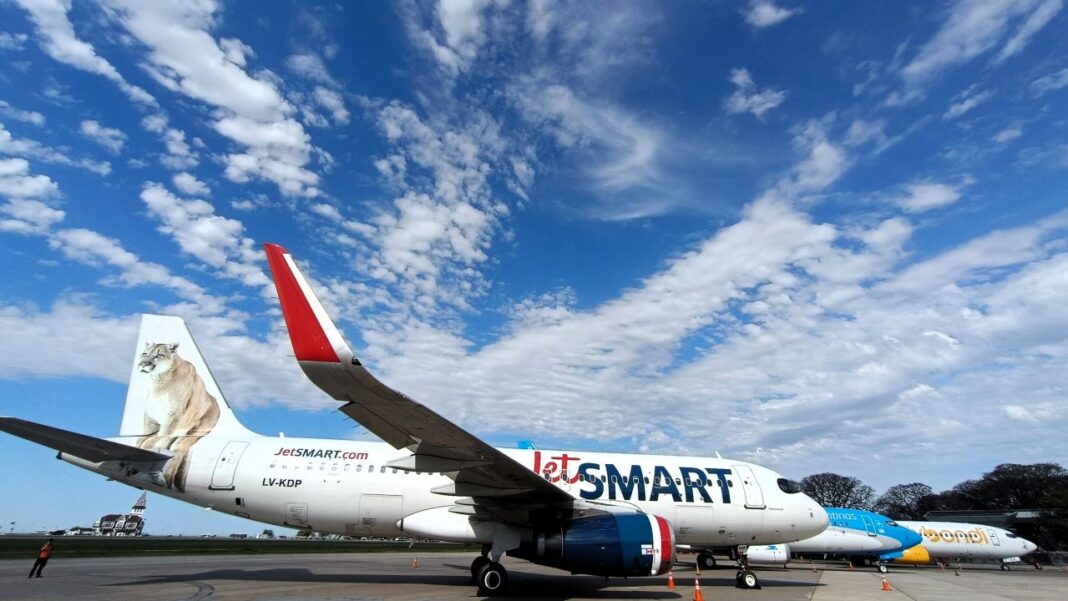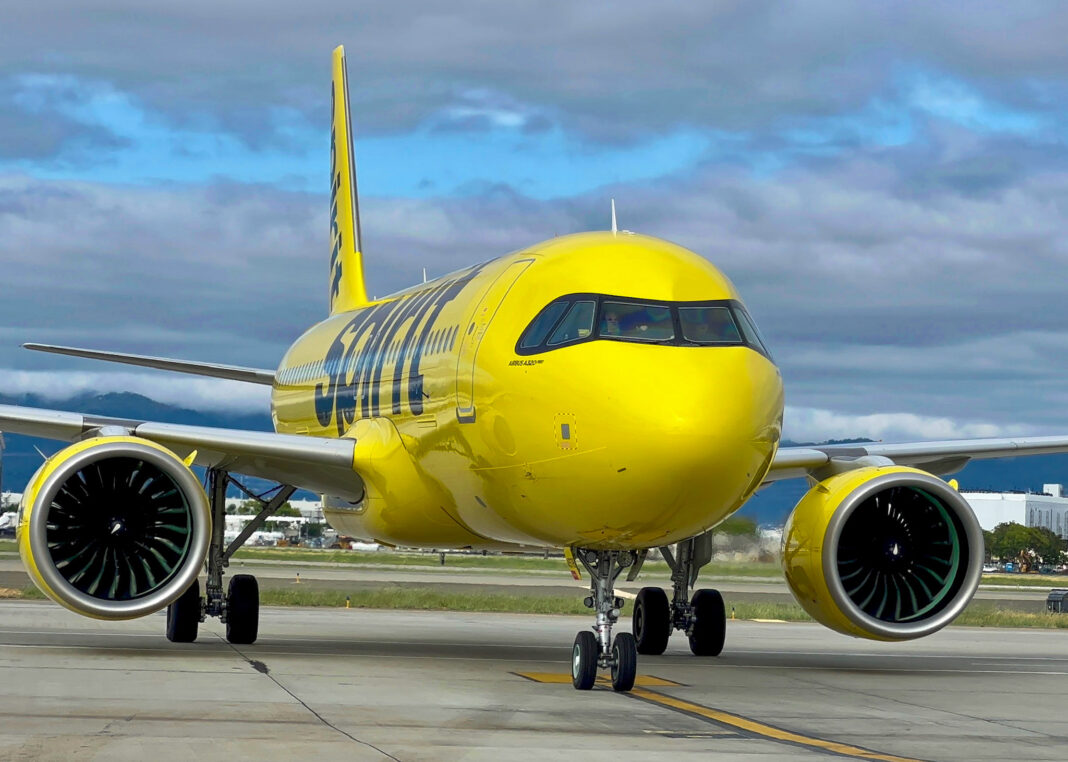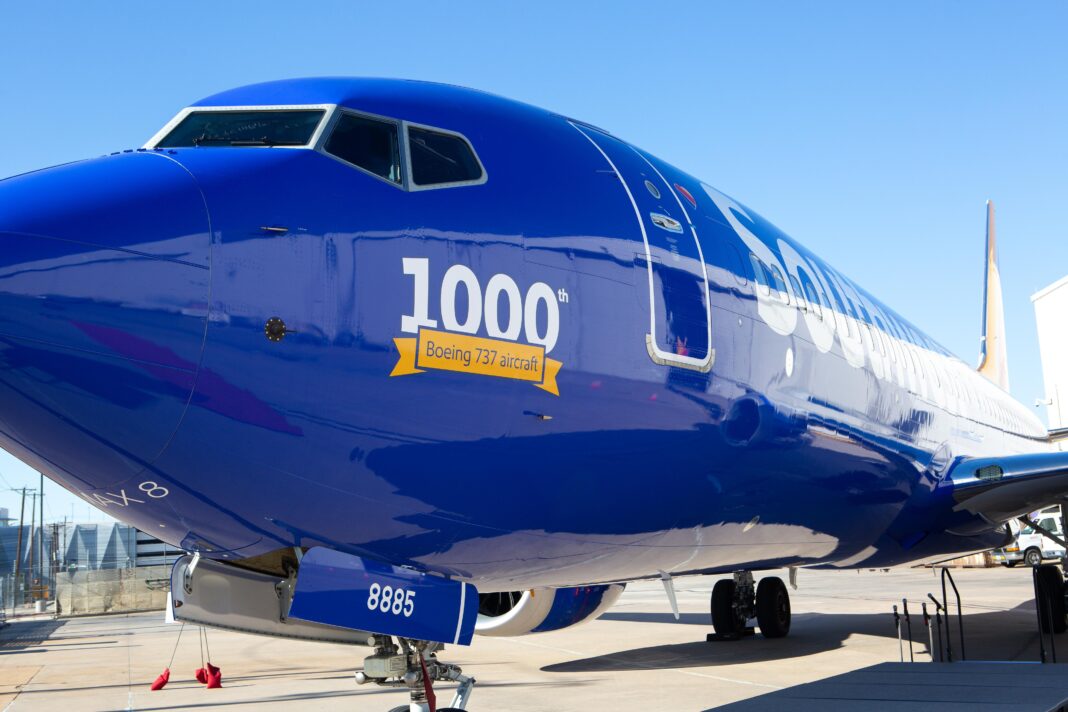It was 24 BC when Octavius Augustus ordered the gates of the Temple of Janus to be shut. That order was a sign that the wars against the Cantabrians and Asturs were finished. Simbolically, it marked the start of a 180-year tenure of relative peace that allowed the Roman Empire to grow until becoming the ruler of the world: the Pax Romana.
It is 2023 AD, and the first waves of spring hit Buenos Aires’ Aeroparque platform. There are three aircraft aligned and ready for the photo op: a Flybondi Boeing 737-800, an Aerolíneas Argentinas Boeing 737-8 and a JetSMART Airbus A320-200.
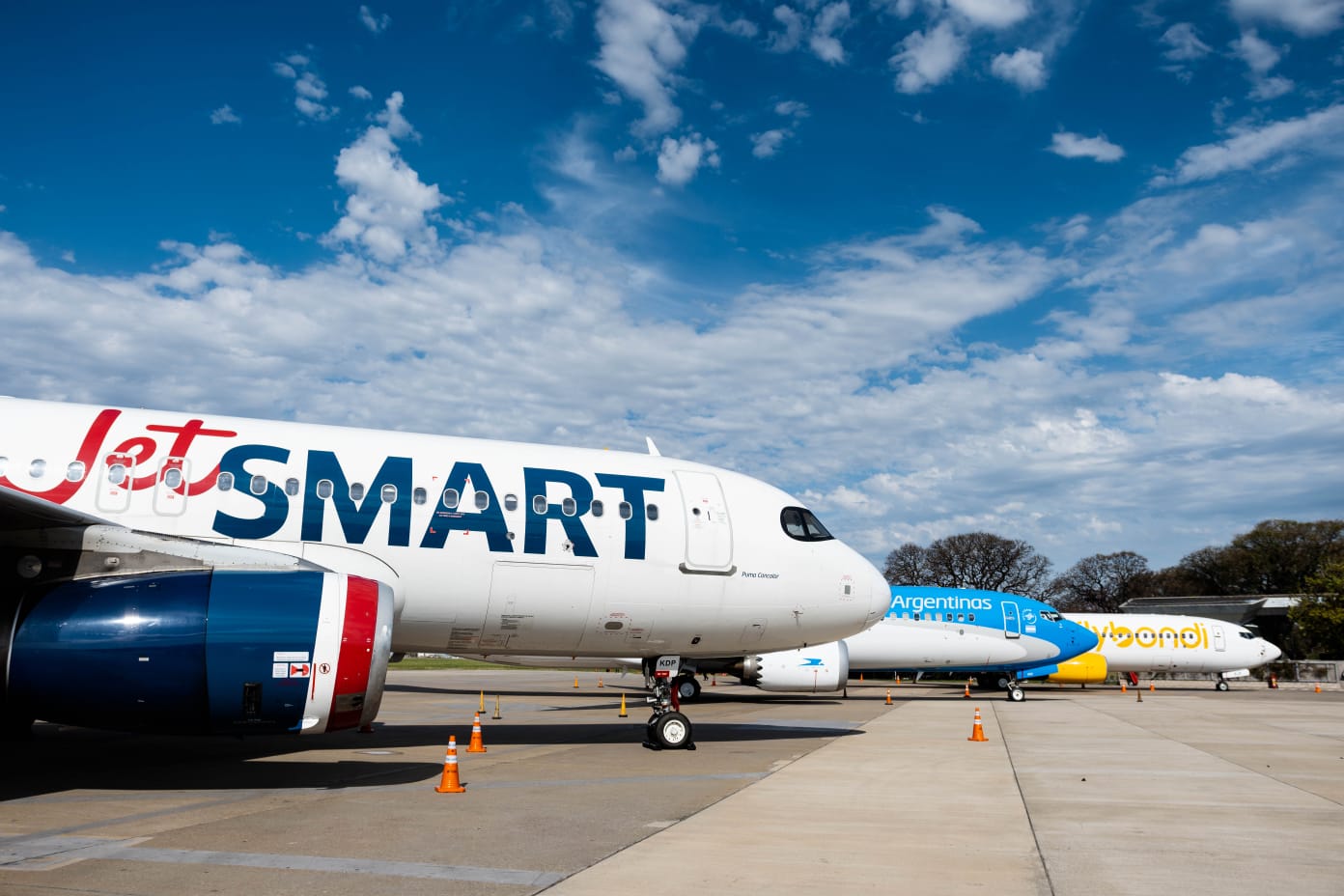
In front of them, a podium, dozens of chairs, a bunch of journalists: something is about to happen. Peace is on the horizon. The Pax Argenta -as Argentina comes from the latin Argentum (silver), I will abuse the metaphor- is about to be signed.
Within the framework of an event held by the Ministry of Transportation, where all the governmental accomplishments of President Alberto Fernandez’s tenure were highlighted, the weight of the subtext is palpable: Argentina’s biggest operators, both in fleet size and passengers transported, are sharing the stage.

A significant consideration looms: a presidential election is imminent. Besides the government’s «look at all we did and make sure you remember it because of, well, the election thingy» -centered harangue, the carriers need to send a message of their own, a stance after four years of a lightly chilled war (cold war is a bit too much): we can coexist. There is room for everyone to grow. We are competitors, not enemies.
However, the true message is more straightforward: the industry wishes to tell presidential candidates to refrain from meddling and not to «fix» what isn’t broken.
Mauricio Sana, Flybondi’s CEO, steps up and expands on this. With a 15-aircraft—and growing—fleet, Flybondi is on the verge of becoming the country’s second-largest carrier, surpassing LATAM Argentina, a subsidiary of the group that left in 2020, citing COVID-19 as a reason.
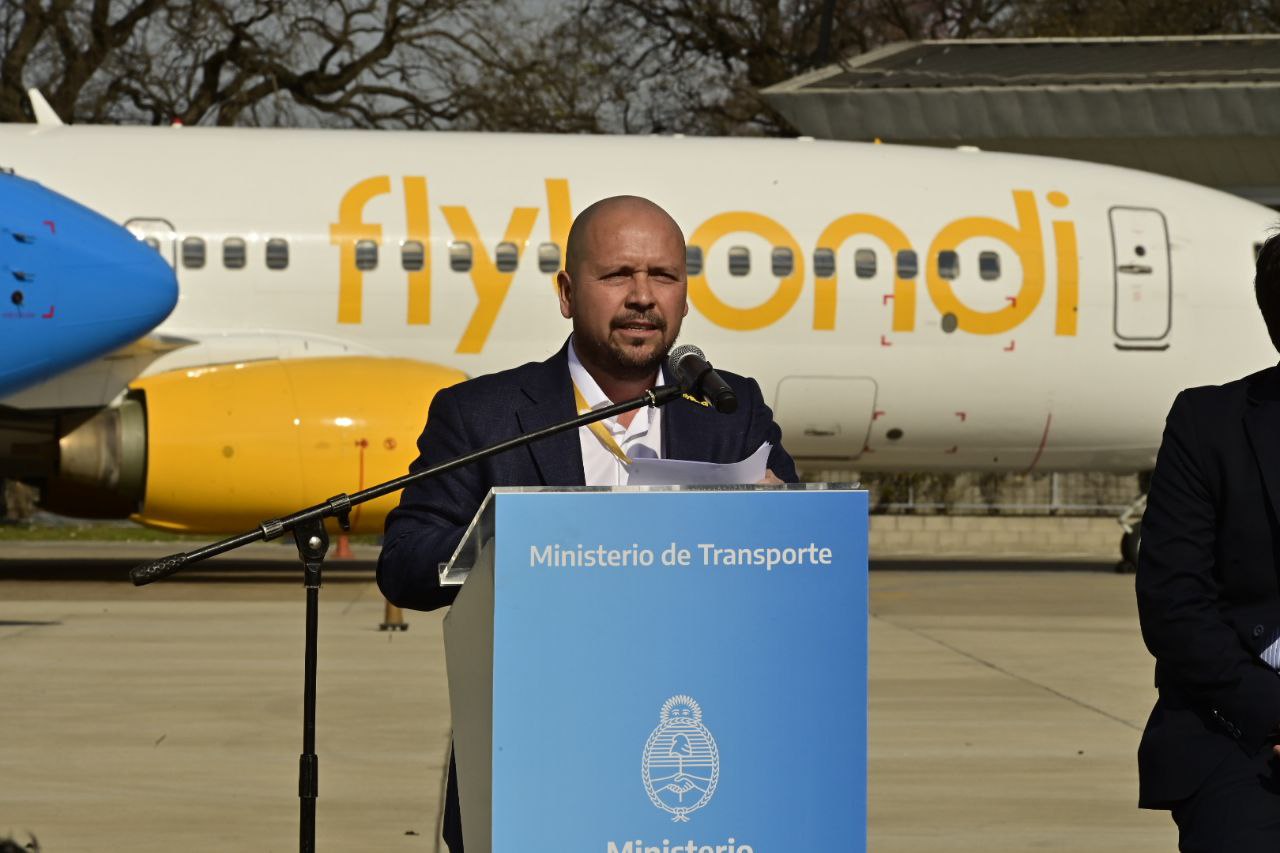
The reality is that the entry of Flybondi, JetSMART, and Norwegian to the market cornered LATAM. Unable to adapt, it lost over 200 million a year in the two years leading up to its exit. When the branch’s annual losses were 10 million, the cost and reputational damage of shuttering LATAM Argentina outweighed the financial drain. However, a loss of 400 million over 24 months, coupled with a pandemic and a shift in the parent group’s focus towards hubs in Santiago de Chile, Lima, and Sao Paulo, made the decision clear.
LATAM’s departure was almost as anticipated as it was messy: the carrier had a bunch of Airbus A320s stuck in Buenos Aires for months, as it couldn’t get them out before Aeroparque’s runway was closed for renovations.
Returning to Flybondi: the company is looking forward to growth while relishing its current harmonious existence. An investment round will list it on Nasdaq, and its 16th 737-800 is scheduled to arrive by year’s end. Sana appreciates and acknowledges the government’s infrastructural advancements and the room afforded to low-cost carriers despite initial resistance.
Why can’t we be friends?
Pablo Biró, head of APLA (Argentina’s major pilot union) and a staunch low-cost opponent, is among the attendees. From the front row, he listens to Sana’s address attentively and applauds, appreciating the need for cooperation. Now, maintaining the status quo means survival. It’s time to welcome allies, even -God save us all- from a low-cost airline.

Aerolíneas CEO Pablo Ceriani takes its turn and talks about Aerolíneas importance as a commercial carrier but also -or mainly- in its connectivity role. He talks about the carrier improving operation numbers, deficit reduction, fleet renewal.
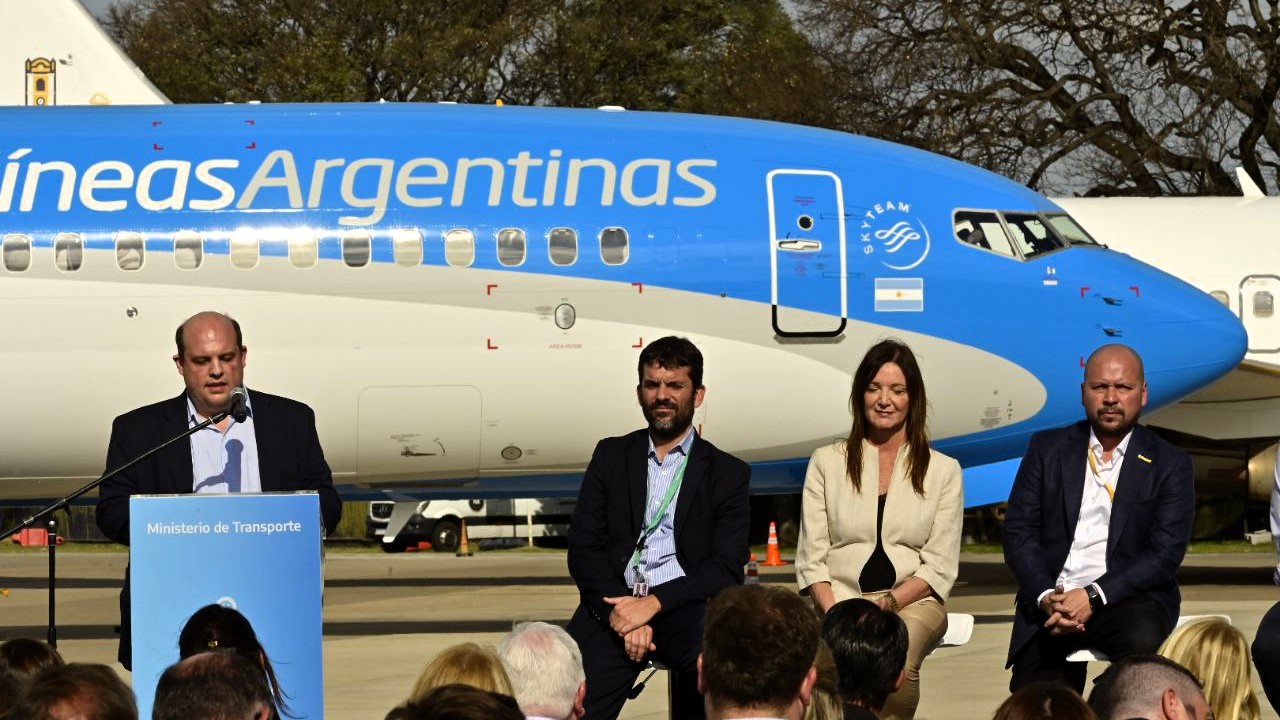
He’s the one that has the margin and ultimately needs to transform this into a campaign event. He understands the moment and goes for it, closing by saying that all this progress will be achieved and extended during -the if is implicit- Massa’s tenure. As his closing remark, people has no choice but to clap. Delightful move.
Gonzalo Perez Corral, JetSMART Country Manager, gets the microphone and follows the same path: bravo for competition and growth, in a market that aims to include new travellers rather than stealing passengers between operators. He praises Aeroparque, Both JetSMART and Flybondi’s new hometown after El Palomar Airport’s adventure got closed.
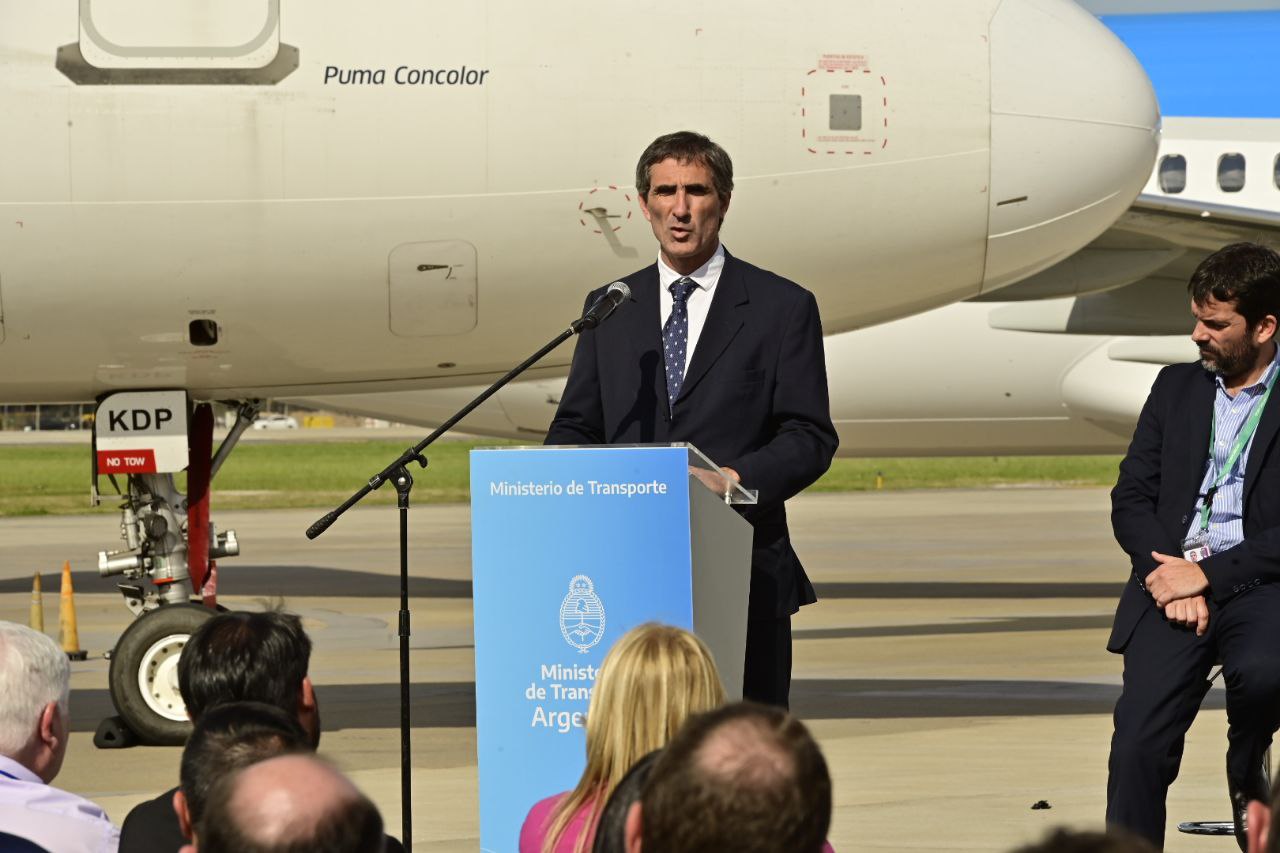
The gentle art of making enemies
Flybondi -and in a minor part, JetSMART’s- path to this peace was not easy, as they encarnated everything that was wrong for a part of the political spectrum. For the other part, they are the knight that came to rescue the damsel retained by the state-owned monster, Aerolíneas Argentinas.
In a polarized country, that two-demon doctrine set the two business models into a collision course, with one demon begging for a leveled playfield and the other enjoying limitless governmental funds. In reality, the LCCs learned to play with the disadvantage and Aerolíneas found out that it would need to adjust its numbers and finally embark in a quest for efficiency. The recently announced strategic partnership with ABRA Group, once unfathomable, is a sign of that evolution.
Those opposite symbols remain until this day, and the upcoming presidential election is a natural scenario for that polarization to emerge. The three main candidates have different views when it comes to the Argentinian aviation market: Patricia Bullrich, Juntos por el Cambio’s candidate, believes in shrinking the state but somewhat leans to optimize the flag carrier operation -with a plan to add point-to-point routes in 50-seaters that makes absolutely no sense, but who’s counting- and some private-state partnership to run the carrier. For the other operators, the good ol’ free will and let the market do the talking.
Javier Milei, La Libertad Avanza’s candidate and front runner after the Primaries, wants to get rid of Aerolíneas Argentinas, along with everything else that is not critical or profitable. He flirted with the idea of «giving the company to its employees» (that is, without a dollar in funding) and see if it can sustain itself long enough.
Sergio Massa, the government’s Unión por la Patria candidate, logically bets for continuity. For its front, Aerolíneas Argentinas is more than the state-owned legacy carrier, as it is a symbol of sovereignity. A key, strategic player that has been a tool for other needs. From vaccines and PPS freighter in times of covid to evacuating connationals from Israel.
That’s why this peace is so important. The whole industry understands that the scenario ahead is turbulent at least, and that it can mess with everyone’s plans. No one, not even the more radicalized Flybondi fan, thinks that Argentina’s market would be better with Aerolíneas gone, as the country’s economy gives no certainty to any carrier that a bold move to fill that void would pay off.
What would have happened if there was no pandemic in the middle? Would the war have been unavoidable? Hello counterfactual, my old friend. But the scenario is the one we have: LCCs are here, Aerolíneas is here. No one left, and not for the lack of trying, in one administration or the other. Despite the efforts, we now seem to have a normal -you can’t imagine how difficult is for us argentinians to use «normal» in a sentence- commercial aviation market.
On a sunny afternoon at Aeroparque, the three carriers and the government decided to send a message to the candidates: go fight somewhere else. We’re good. It’s no time for changes, but to brace for impact. The question, though, remains.
How long this peace will last?
Hours away from the elections, the jury is still out on that: the immediate fear is set on the morning of Monday, October 23. As a steep peso depreciation is more anticipated that Top Gun: Maverick and the subsequent hyper inflation (never saw the term hyper before inflation? Kind of a classic around here) is expected to stall travel as people will focus their attention and their wallets into things a bit more urgent like, you know, eating.
Depending which candidate emerges on top and configures the panorama for the second round -the chances of any of them to claim victory in round one (45 percent plus one vote or 40 percent and 10 points of difference to the second) are nigh-, that depreciation can spiral into catastrophe or decelerate a bit for it to explode later. But all that falls way outside aviation.
What we know today is that there is a truce in which all parties want to rest for now, until things clear. A peace born of necessity, that hold a few grudges that are still latent. A bitter peace in which everyone loses a bit, and everyone gains a bit. Low-Cost carriers are recognized by the government as a key actor. Finally, a seat on the table that was not able to be denied.
Aerolíneas Argentinas consolidates its position as main carrier, softens its stance and shows itself under a different light: let’s talk about efficiency, about normality, about progress. Let us all show the world we’re here to stay. All of us.
The Pax Romana lasted 180 years until Marcus Aurelius’ death and well, you all saw Gladiator. The main difference with the Pax Argenta is that the empire is already on the verge of disaster and the current emperor dies next december. If he hasn’t already.


